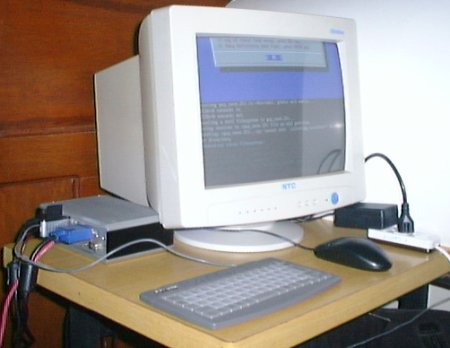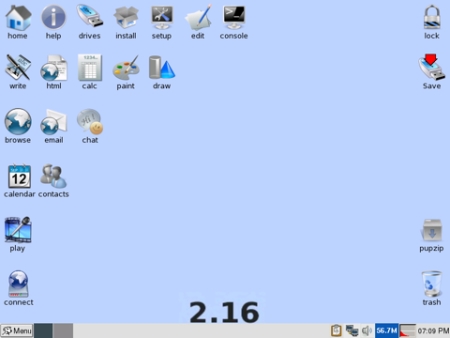Puppy Linux targets sub-$100 mini-PCs
May 21, 2007 — by LinuxDevices Staff — from the LinuxDevices Archive — 3 viewsFollowing the addition of PXE network booting to the ultra-lightweight Puppy Linux distribution, a group of enthusiasts offering Puppy customization and support services has revealed plans for a version of Puppy tuned to the needs of diskless mini-PCs. The “Minipup” project is aimed at diskless hardware such as sub-$100 PCs.
digg this story |
MiniPup is a Philippines-based organization headed up by Raffy Mananghaya, a computing professor at the University of Philippines. Along with services offerings around Puppy, the project maintains a “Minipup” distribution specifically aimed at ultra-low-powered PCs with Pentium II or III class processors.
Mananghaya said that he got PXE booting working with Minipup “within hours” of the upstream release of Puppy 2.16, which added support for the PXE-friendly SFS bootloader, among other new features. Forum posts show that he worked with Puppy Linux founder Barry Kauler for several days to iron out a few bugs.
Mananghaya reports that his hardware setup was an eWay Co TK mini-PC, based on an 800MHz Via processor. The mini-PC loaded Puppy Linux 2.16's “initrd-humongous” kernel via PXE, then used tftp to fetch a compressed filesystem, it appears. The complete boot can be accomplished in 53 seconds, Mananghaya said, with local user configuration optionally stored to a USB key between boots.

eWayCo TK booting MiniPup

MiniPup Desktop
In the future, the Minipup project plans to offer a distribution specifically for diskless mini-PCs that boot via PXE, Mananghaya said. More details may be available on its project website.
This article was originally published on LinuxDevices.com and has been donated to the open source community by QuinStreet Inc. Please visit LinuxToday.com for up-to-date news and articles about Linux and open source.